The SIMPLE Archive
The vision of the SIMPLE project is to create a collaborative database of low-mass stars, brown dwarfs, and directly imaged exoplanets: a simple archive of complex objects. The tables and fields currently included in the database are described in the Documentation and currently include names, coordinates, photometry and reference and data provenance information and is visualized in the schema.
Holdings
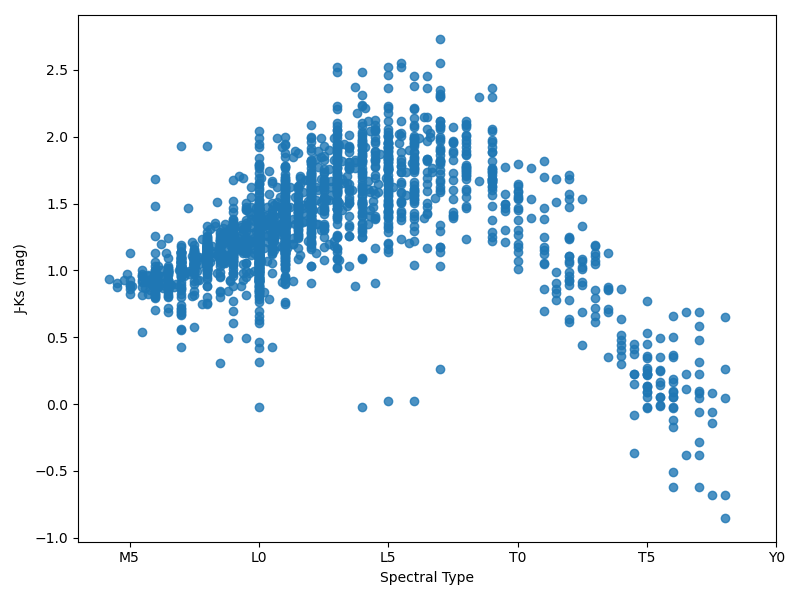
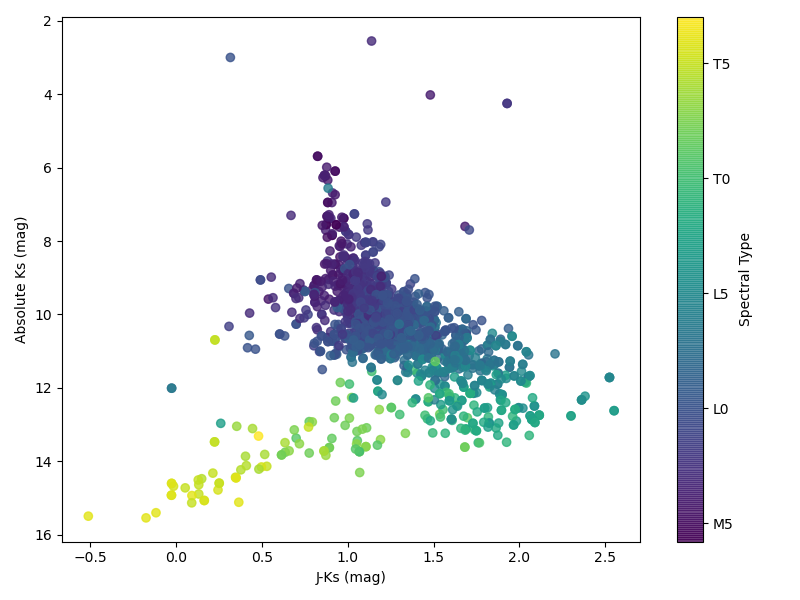
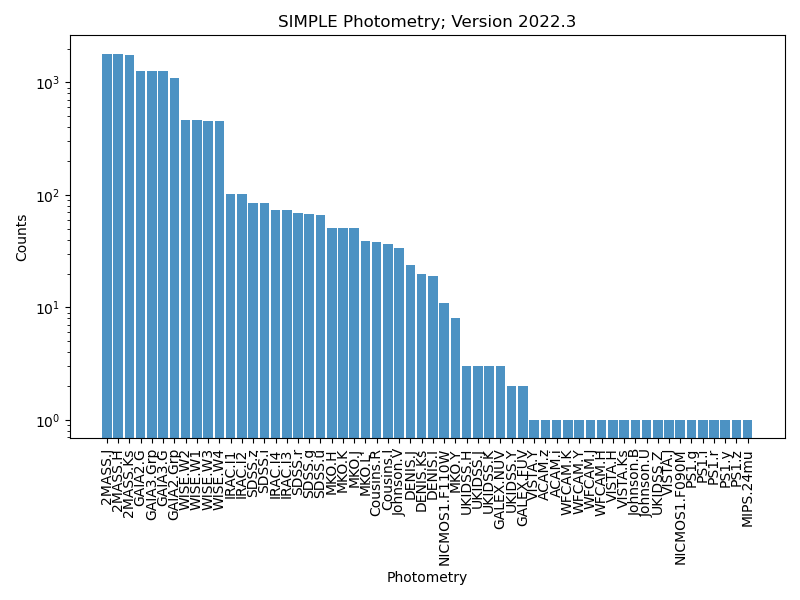
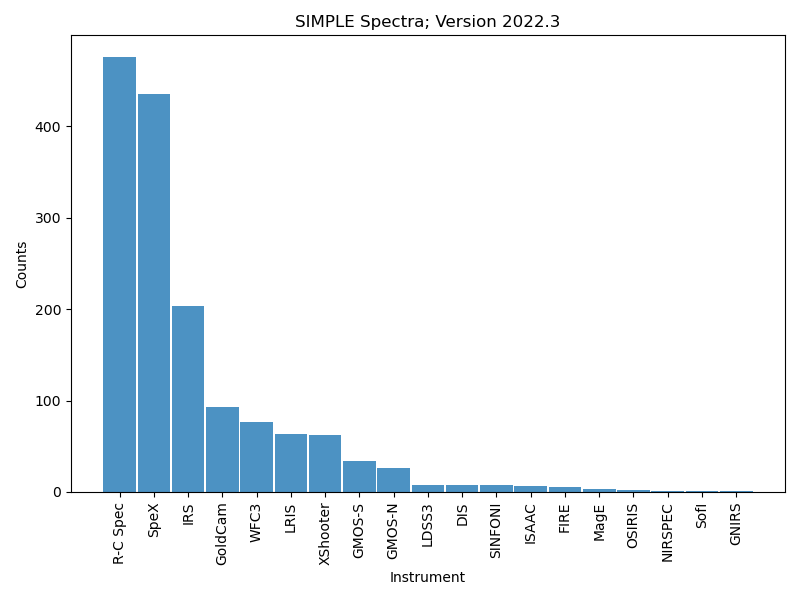
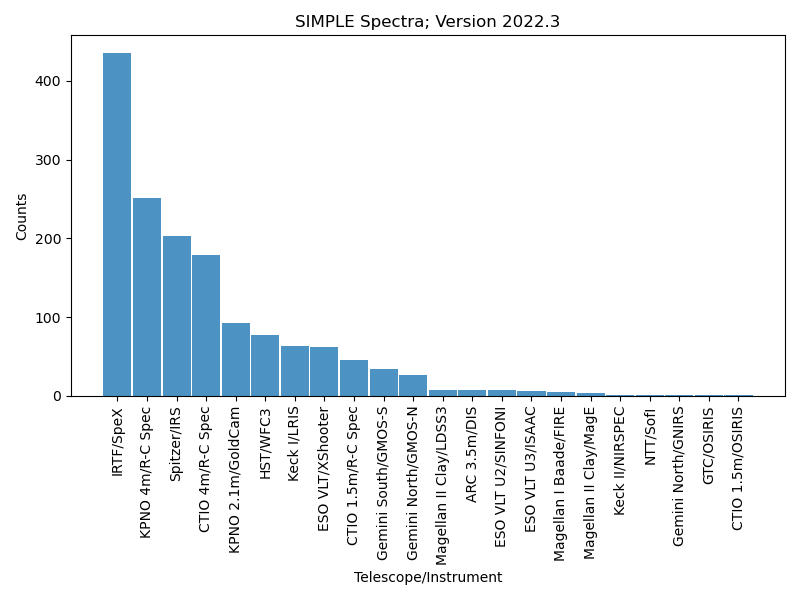
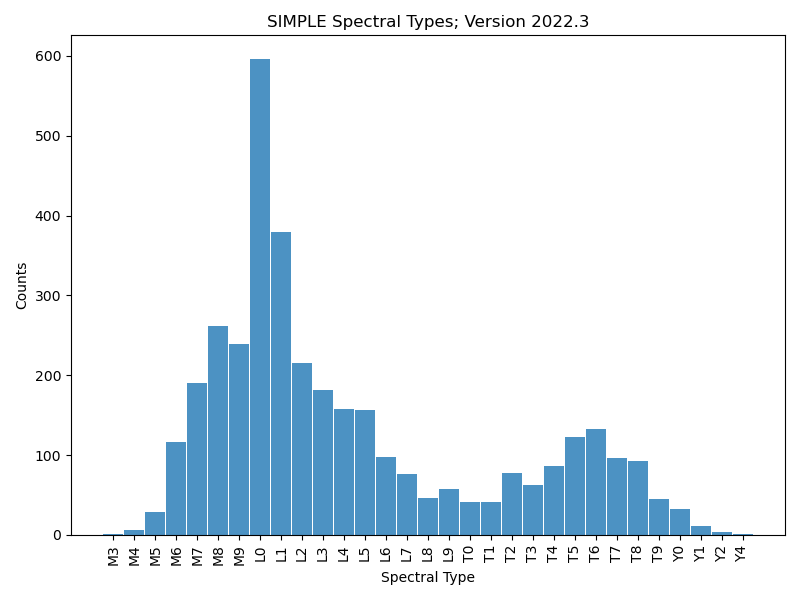
We are currently working on including kinematics, spectra, images, and modelled and retrieved parameters.
We are developing several different methods to interact with the database, including python,
a website and API, and database browsers.
This database uses the
SQLAlchemy ORM and is designed to be interacted with via the
astrodbkit2 package.
The full database can be downloaded from the
binary repo
and manipulated via local SQLite software.
The change log following the different versions of the database can be read
here.
To see more details about how this project got started and our first discussions,
check out the
archived running notes in the Wiki.
Publications:
Cool Stars 20.5 2021 Poster
ADASS XXXI 2021 Poster
Cool Stars 21 2022 Poster
ADASS XXXIII 2023 Poster
Cool Stars 22 2024 Poster
Acknowledgement:
If the SIMPLE database has been useful for your research, please include the following text. This work has made use of the SIMPLE Archive of low-mass stars, brown dwarfs, and directly imaged exoplanets: 10.5281/zenodo.13937301.
Getting Involved:
If you'd like to take part or just stay in the loop as this project progresses, please request to join the discussion list. For day-to-day discussions, please join us in the #simple-db-dev channel in the Astropy Slack workspace. If you are not already in the Astropy Slack, request an account.
Contributors:
See here for the (ever evolving!) list of contributors to the database and website.
Imposter syndrome disclaimer:
We want your help. No, really.
There may be a little voice inside your head that is telling you that you’re not ready to
be an open-source contributor; that your skills aren’t nearly good enough to contribute.
What could you possibly offer a project like this one?
We assure you - the little voice in your head is wrong.
If you can write code at all, you can contribute code to open source.
Contributing to open-source projects is a fantastic way to advance one’s coding skills.
Writing perfect code isn’t the measure of a good developer (that would disqualify all of us!);
it’s trying to create something, making mistakes, and learning from those mistakes.
That’s how we all improve, and we are happy to help others learn.
Being an open-source contributor doesn’t just mean writing code, either.
You can help by writing documentation, tests, or even giving feedback about the project
(and yes - that includes giving feedback about the contribution process).
Some of these contributions may be the most valuable to the project,
because you’re coming to the project with fresh eyes,
so you can see the errors and assumptions that seasoned contributors have glossed over.